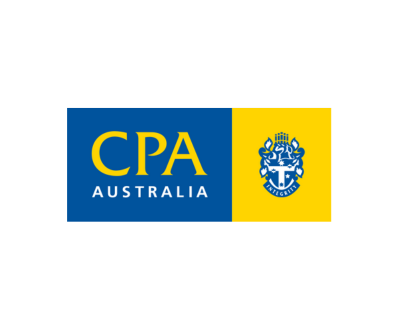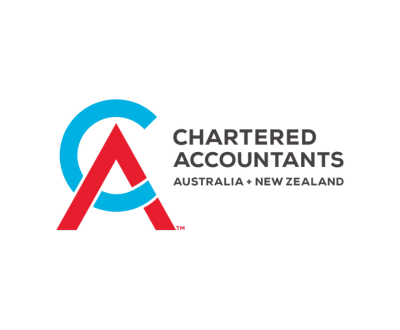This introductory subject provides an essential foundation in accounting, emphasising its critical role in business decision-making. Key accounting principles and different business structures are explained, enabling students to analyse financial statements, create a budget, and effectively evaluate business decisions. With a blend of theory and practical application, students will learn to use accounting information to make sound business decisions, while also considering ethics and sustainability.
Delve into the essentials of business law by exploring the legal frameworks surrounding corporations, not-for-profits, and churches. Gain insights into Australia's legal system, including criminal, contract, and workplace law, and understand the regulatory environment's impact on business operations, laying a solid legal foundation for future endeavours.
Understanding contemporary economics is essential for navigating today's complex financial landscape. This subject equips students with theoretical tools and practical applications, examining economics' historical, ethical, and theological dimensions. Topics include market dynamics, public policy, and the economics of religion, preparing students for informed analysis and decision-making.
In today's fast-paced financial landscape, informed decision-making is key to personal and organisational success. Financial Decision Making equips students with vital skills, focusing on strategic and everyday financial choices. With practical case studies from Australia and beyond, the unit covers the time value of money, risk evaluation, and cash flow analysis. Students will learn how to apply financial planning strategies to navigate complex challenges effectively.
This subject explores the foundational values of integrity, stewardship, and justice, providing students with practical tools to navigate ethical challenges in business. While exploring the role of ethics in organisational dynamics and corporate governance, students will delve into ethical philosophies and examine their direct and indirect impacts on the economy, business practices, and individual responses. The course builds an understanding of global business ethics and their application in real-world contexts through a study of diverse cultural perspectives.
Students will learn how ethical decision-making rooted in Christian principles can transform the workplace and inspire a positive impact in the broader community. Through case studies, discussions, and real-world applications, students will develop their own personal ethos with a focus on integrating ethical principles into business practices informed by a Christian worldview and they will learn how to align their professional actions with a faith-driven purpose, ensuring responsible leadership and sustainable success.
This foundational subject equips students with the essential management skills needed to design roles, recruit effectively, train teams, and develop fair compensation structures. By integrating these skills, students will be prepared to enhance job satisfaction and productivity within organisations, considering ethical and responsible management practices from a Christian perspective.
Centred on consumer value, this unit explores marketing's evolution and its current dynamics. Students will learn to analyse consumer needs, craft strategic marketing plans, and utilise the marketing mix effectively. Ethical considerations are considered throughout these aspects, preparing students to create impactful, responsible marketing strategies in a competitive landscape.
This unit highlights technology's role in enhancing business decision-making, positioning it as a supportive tool rather than the main objective. Students will discover how accounting and business information systems can drive organisational efficiency and governance. The curriculum emphasises ethical data practices, risk management, and strategic information utilisation, preparing learners to tackle modern challenges in information management to maintain a competitive edge.
This subject will commence in 2025
This subject will commence in 2025
This subject will commence in 2025
Gaining proficiency in practical financial decision-making is crucial for both personal and business success. Through this subject, students will uncover how the global financial system functions, assess risks in capital markets, and learn strategies for financing significant projects and valuing businesses. The course also addresses raising capital and managing debt with a focus on ethical considerations.
This subject will commence in 2025
This subject will commence in 2025
This subject is delivered for City Harvest Church students.
This subject explores the foundational values of integrity, stewardship, and justice, providing students with practical tools to navigate ethical challenges in business. While exploring the role of ethics in organisational dynamics and corporate governance, students will delve into ethical philosophies and examine their direct and indirect impacts on the economy, business practices, and individual responses. The course builds an understanding of global business ethics and their application in real-world contexts through a study of diverse cultural perspectives.
Students will learn how ethical decision-making rooted in Christian principles can transform the workplace and inspire a positive impact in the broader community. Through case studies, discussions, and real-world applications, students will develop their own personal ethos with a focus on integrating ethical principles into business practices informed by a Christian worldview and they will learn how to align their professional actions with a faith-driven purpose, ensuring responsible leadership and sustainable success.
This subject will commence in 2025
This subject will commence in 2025
This subject will commence in 2025
This subject will commence in 2025
This subject will commence in 2025
Conducting effective market research is essential for understanding customer needs and driving informed decision-making within organisations. Through this unit, students will be equipped with the skills to design, conduct, and analyse both qualitative and quantitative research, transforming data into actionable insights. Students will explore the strategic role of market research, its applications, and ethical considerations across various sectors, including corporate and church environments.
Mastering organisational behaviour is essential for thriving in the complex environment of the modern workplace. This unit focuses on the behaviour of individuals and groups within organisations, tracing from historical roots to modern-day practices in management, leading effectively, and fostering collaborative teams. Combining academic theories with real-world applications, it equips students with the tools to understand and influence organisational dynamics.
Managing sales effectively is essential for anyone looking to thrive in business by effectively making and retaining customers. This unit equips students with both theoretical knowledge and practical skills in sales, including working with CRM systems and developing robust communication and negotiation techniques. Students will learn to craft comprehensive sales strategies, perform detailed market analyses, and create value for customers.
Understanding consumer behaviour is pivotal for crafting effective marketing strategies. This subject delves into the psychological, social, and cultural factors that influence buying decisions, equipping students with the ability to analyse and make predictions on consumer actions. Through exploring key theories and frameworks, students will learn to apply this knowledge to real-world marketing decisions.
Non-Profit Organisations have unique challenges to navigate in creating social and spiritual value. This unit explores multi-stakeholder marketing, teaching how to build movements, transform supporters into advocates, engage sponsors, and secure grants. By developing a strategic marketing plan tailored to NFPs, students will learn to balance ethical values with effective marketing strategies.
Exploring how organisations connect with their audiences, this subject delves into the complexities of marketing communication strategies, providing insights into mass communication, media planning, and the digital revolution, including social media. Students will learn to critically analyse various communication theories, design impactful messages, and create an effective media mix tailored to specific target audiences.
There are several challenges inherent in international marketing including cultural sensitivity and strategic planning in overseas operations. This unit provides essential tools to analyse cultural differences and develop effective cross-cultural marketing strategies. Students will evaluate international marketing theories, design comprehensive marketing plans, and learn to navigate complex issues, including ethical considerations and logistical challenges.
Understanding Australia's financial reporting landscape is crucial for success in diverse organizational contexts. Gain the knowledge and skills to interpret complex financial statements, apply accounting standards effectively, and remain informed about current developments, preparing you for real-world challenges in financial reporting.
Build on accounting fundamentals and progress onto mastering accounting processes. Learn about key concepts and theories of financial reporting, transaction recording and preparation of financial reports. Students will become proficient in basic double entry accounting, and learn practical skills in using accounting software packages. The skills to critically evaluate financial reports are developed, while management skills related to financial management and performance are both imparted and applied.
Proficiency in management accounting is essential for informed organisational decision-making. Learn budgeting, costing, and performance evaluation techniques. Explore contemporary developments and gain skills in budget preparation and variance analysis. Master the tools for strategic financial planning and control, essential for navigating dynamic business environments.
Through exploring the systems and processes that drive financial data management within businesses, you will learn to use advanced tools like XBRL for reporting, assess internal controls, and implement effective corporate governance and audit planning, ensuring robustness and integrity in financial systems. Gaining these skills is beneficial for future roles in business and finance.
In the intricate landscape of corporate group accounting, mastering the accounting methods for managing investments in entities is essential. This unit equips students with the skills to navigate the classifications of investments as subsidiaries, associates, or joint ventures and the complexities of financial reporting as per Australian Accounting Standards. It also covers the preparation of consolidated financial statements, equity accounting, and other advanced topics.
Understanding financial statements is crucial for making informed business decisions. In this subject, students learn to analyse and interpret financial data, assess business strategies, and critically evaluate financial disclosures. They develop skills to effectively research and use financial information for investment and credit recommendations. The unit also covers advanced valuation techniques and economic theories to prepare students for real-world financial challenges.
No curriculum description, objectives, outcomes or content available
No curriculum description, objectives, outcomes or content available
Gaining a deep understanding of accounting theories enhances the ability to navigate complex financial reporting issues. This subject equips students with the skills to critically evaluate and apply various accounting theories within the framework set by the Australian Accounting Standards Board. Students will explore a range of contemporary issues, including fair value accounting and international harmonisation, providing a comprehensive perspective on current and emerging trends in accounting practice.
As financial transparency becomes increasingly crucial, this unit shines a light on the critical role of auditing in ensuring the reliability of financial statements. Students will delve into the auditing process and its essential legal and ethical foundations, gaining insights into risk assessment, audit strategy design, and report formulation.
In today's fast-paced financial landscape, informed decision-making is key to personal and organisational success. Financial Decision Making equips students with vital skills, focusing on strategic and everyday financial choices. With practical case studies from Australia and beyond, the unit covers the time value of money, risk evaluation, and cash flow analysis. Students will learn how to apply financial planning strategies to navigate complex challenges effectively.
Through this subject, students are equipped with critical insights into managing financial integrity risks, particularly within not-for-profits and churches. Through a blend of theoretical understanding and practical application, students will design a financial integrity system, crucial for protecting the assets and reputations of organisations within their communities.
Recognising the need for informed decisions in today's data-driven marketplace, this course introduces students to essential mathematical and statistical methods needed in business, with a focus on ethical data usage and effective decision-making. You will learn to critically analyse, summarise, and present data, understanding its significant role in not only for-profit environments but also in NGOs and NFP organisations.
Grasping Australian corporate law is crucial for effective company management and operation. This subject offers an examination of business structures, the impact of incorporation, and the roles of directors and officers within both for-profit and not-for-profit sectors. Students will gaining critical insight into corporate governance, the Corporations Act 2001 (Cth), the responsibilities of company directors, and the operations of ASIC.
Gaining proficiency in practical financial decision-making is crucial for both personal and business success. Through this subject, students will uncover how the global financial system functions, assess risks in capital markets, and learn strategies for financing significant projects and valuing businesses. The course also addresses raising capital and managing debt with a focus on ethical considerations.
For not-for-profits and churches, understanding governance, law, and taxation is critical for effective management. This unit equips students with a sound understanding of the specific regulatory and taxation frameworks applicable to NFPs and religious organisations in Australia. Students will learn to apply this knowledge to real-world scenarios, critically engaging with contemporary policy debates surrounding these sectors.
Navigating the complexities of taxation law is important for informed personal and business decision-making. This subject prepares students to critically analyse, resolve issues, and perform taxation calculations. Through research and practical application of tax law, students will develop dynamic skills to adapt to legal changes, enhancing their ability to manage future taxation challenges effectively.










